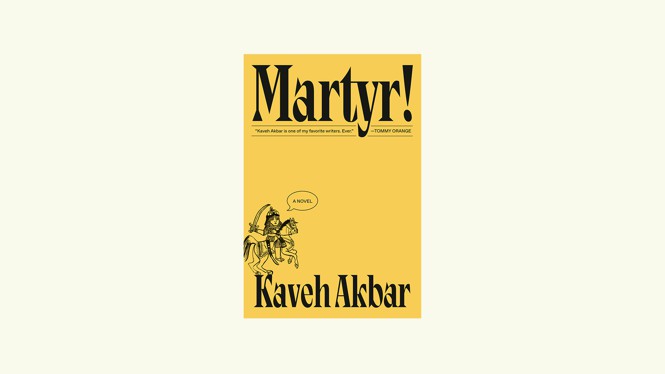The Atlantic 10

For three years running, while considering which books will make up our Atlantic 10 list, we have asked ourselves the same basic questions: Which stories this year brought unexpected clarity to the subjects that most confounded our understanding? Which of them opened up new, enlivening ways of thinking about things we only thought we knew? This effort feels particularly valuable at a moment when the world is changing rapidly and dramatically.
Each of our 10 resulting selections is a triumph of alchemy, deriving insight from fresh combinations of dismay and delight, tragedy and comedy, mourning and hope. Two memoirs vividly focus on specific lives while also displaying the power of history to shape the individual. Sometimes a bracing perspective emerges through formal play, as in a tight epic of a poem about an atrocity. It can come through an adventure story that reimagines an American classic, or from dogged reporting on systemic failures that lead to foreseeable catastrophes. The feature that distinguishes all of these titles—or any book worth cherishing—is the surprising experience of reading them.
— Ann Hulbert, Boris Kachka, Jane Yong Kim
Martyr!, by Kaveh Akbar
Cyrus, the main character of Akbar’s engrossing, layered story, has had a tumultuous youth: He grew up hearing about his mother’s early death, after the Iranian airliner she was on was mistakenly shot down by the U.S. Navy; his father moved him from Tehran to Indiana to make a new life; he lost much of his 20s to drug and alcohol addiction. Now two years sober, Cyrus has realized that without substances, he struggles to find meaning—or at least to fill the hole that they used to occupy. He decides that if living has no point, perhaps he could imbue his death with meaning: that is, die a martyr. Though Cyrus is a defeatist by nature, his plan isn’t as maudlin as it might seem. He’s inspired by a particular kind of martyr: not those who died for God or for eternal glory, but ones who sacrificed themselves for other people. Akbar’s novel, which is largely about death, is strangely life-affirming. It’s a full-throated, complex work that embraces sentimentality, melodrama, and our most uncontainable emotions.
James, by Percival Everett
James is a retelling of Mark Twain’s Adventures of Huckleberry Finn that dashes its source material against the rocks. Everett arranges the resulting fragments into a grim picture: The folksy charm of Jim, Huck Finn’s loyal traveling companion on the run from slavery, is replaced with the devilish wit of James, a serious, erudite man making tough choices in deadly situations. Twain’s somewhat sanitized antebellum South is swapped for a landscape replete with cracking whips, human-breeding houses, and men hunting men. Gone, too, are the original novel’s gentler, high-school-friendly themes of human empathy and boyish adventure. James investigates loftier and more uncomfortable questions, such as the intimate relationship between violence and enlightenment, and the difference between mere escape and true freedom. As our protagonist makes his flight from bondage along the Mississippi River, dodging slavers, sailing alongside an unrecognizable Huck, indignities continue to accumulate, hardening James, until violent delights culminate in delightfully violent ends.
The Hypocrite, by Jo Hamya
Over the past several years, many people decided they were no longer going to abide behaviors that had long been brushed aside. Hamya’s novel captures that cultural shift with devastating precision, casting it as a generational battle between a parent and child. The book is set over the course of one afternoon in 2020, when a famous English novelist attends a performance of his daughter Sophia’s play, and quickly realizes that its protagonist—an offensive writer who is played for laughs—is based on him. Although he’s always been a divisive figure, the author is now seen less as a provocateur and more as an out-of-touch misogynist. The novel includes flashbacks to a summer Sophia and her father spent in Sicily a decade ago—and as Hamya switches between their perspectives, she seems committed to presenting each argument with intellectual honesty, rather than advancing one point of view. In showing how Sophia and her father are illegible to each other, The Hypocrite exposes a chasm separating frustrated young people, who resent the world they’ve inherited, from some of their elders, who see this cohort as irredeemably misguided.
The Brush, by Eliana Hernández-Pachón, translated by Robin Myers
The Brush is a book-length poem about people trapped and menaced by forces beyond their control. It tells the story of Colombia’s February 2000 El Salado Massacre, during which paramilitary forces tortured and murdered 60 people, by following a married couple: We hear first from Pablo, who will soon be killed, and then from his wife, Esther, who must flee their village. The witnesses and investigators then add their accounts, until finally the very undergrowth surrounding the site of the killing also speaks, asking, “How is it that time didn’t stop / why do the grain’s unopened eyes / keep growing?” In Myers’s limpid translation, The Brush feels like a fresh discovery thanks to its narrative range, which insists on exploring both an intimate relationship that’s wrenched apart and the much larger ecosystem in which the separation occurs. Hernández-Pachón, the youngest winner of Colombia’s national poetry prize, captures a community ruptured by violence, exemplified by two lovers caught in its churn.
Challenger, by Adam Higginbotham
In January 1986, the space shuttle Challenger disintegrated in the sky, stunning spectators watching at Cape Canaveral and schoolchildren tuned in to live broadcasts—and, soon, the whole nation. Only about a minute after the ship flung itself away from the planet, it was wrenched apart, killing all seven astronauts onboard—including Christa McAuliffe, the woman who would have been America’s first “Teacher in Space.” But Challenger’s demise was not a surprise to everyone, as Higginbotham’s book exhaustively shows: NASA engineers and contractors had raised concerns for years about a potentially fatal flaw in the solid rocket boosters, to the point of having a high-level conference call the night before about whether to cancel the launch. Challenger is a capable, accessible history of spaceflight that understands and admires what drives our species to reach for the stars. More pointedly, it’s a slow-motion tragedy in which each opportunity to avert death is described in riveting and anguishing detail, and it adds up to a sober warning about where ambition curdles into hubris.
Creation Lake, by Rachel Kushner
Since her remarkable novel The Flamethrowers came out in 2013, Kushner has personified cool in American letters. As a rule, her fiction features tough, smart, challenging women who rarely, if ever, let their guard down—but the protagonist of her new literary noir, Creation Lake, a spy-for-hire called Sadie, takes a startling turn toward vulnerability instead. The novel is full of obscure menace and offbeat philosophy, with characters including ecological extremists, shadowy political bosses, and a radical social theorist who lives in a cave. Its emotional heft, though, comes from Sadie’s slow realization that she’s conned herself: Her untouchable persona has covered up her real ambivalence about the macho world she inhabits. Creation Lake is a raw, surprising reminder that cool isn’t always what it’s cracked up to be.
Patriot, by Alexei Navalny
As he was writing his memoir, first in freedom and then from a cell, Navalny understood just how compelling the book would be, especially if he didn’t live to complete it. “Let’s face it, if a murky assassination attempt using a chemical weapon, followed by a tragic demise in prison, can’t move a book, it is hard to imagine what would,” the Russian activist, a constant thorn in the side of Vladimir Putin, wrote in Patriot—a prescient statement delivered with the grinning mischievousness that was Navalny’s signature. He did, in fact, die in state custody this year under mysterious circumstances. But this book continues to speak for him. It chronicles his life as a dissident—his youth in the Soviet Union, his fight against corruption and autocracy in Putin’s Russia—before giving way, in the last few hundred pages, to the diary Navalny kept while in prison, along with sporadic Instagram messages he was able to smuggle out through his lawyers. Throughout, his words testify to the humor and optimism needed to withstand such an ordeal. Navalny displays these qualities in abundance, and in a moment when authoritarianism is on the rise, his attitude provides a valuable lesson on how resistance can sustain itself.
A Wilder Shore: The Romantic Odyssey of Fanny and Robert Louis Stevenson, by Camille Peri
Peri’s joint biography is a thrilling, haunting yarn of the sort that the Scottish writer Robert Louis Stevenson himself became famous for—and couldn’t have written without his wife, Fanny Vandegrift, a free spirit from Indiana. When they fell in love at a French artists’ colony in 1876, he was a spindly 25-year-old, sickly and imaginative since childhood, yearning to “be a nomad” and write, but still sponging off his parents. At 36, she had already led an adventurous life, and left a rakish husband, in America. In pursuit of her, Louis said he “dared everything.” During their marriage-on-the-move (which involved Louis risking death on a succession of arduous, eye-opening journeys, the last one to Samoa), Fanny was his caretaker, creative catalyst, and stringent critic as his fiction took off: Treasure Island, The Strange Case of Dr. Jekyll and Mr. Hyde, and Kidnapped all came out within three years. Among Louis’s literary gifts, Peri emphasizes one that he and Fanny honed in their undaunted life together: insight into “the psychologically harrowing challenges of achieving adulthood with one’s youthful idealism intact.”
The Unclaimed, by Pamela Prickett and Stefan Timmermans
Every year, thousands of Americans die without anyone claiming their bodies, which are left to be buried in mass graves. In an era of widespread disconnection and loneliness, the phenomenon is only growing. With empathy and ambition, Prickett and Timmermans, both sociologists, examine how this kind of ending comes to be. They reconstruct the lives of several people who drifted away from family, sought independence at the expense of community, or struggled to set down roots—scenarios that put them in danger of sharing this fate. They also introduce us to the dogged bureaucrats who work to figure out next of kin. Together, these interlocking stories potently illustrate how valuable, but precarious, our support systems—institutional or intimate—can be. The Unclaimed has plenty of governmental critiques; the authors decry, for example, the narrow definition of family that can deny friends the opportunity to claim their loved ones. But it directs its biggest challenge to readers, asking us to rethink our bonds with one another and consider how we might strengthen them on a nationwide scale.
Whiskey Tender, by Deborah Jackson Taffa
Whiskey Tender demonstrates how vital it is to understand the way history shows up in the knotty particulars of every single life—especially after an election that put the lie to sweeping statements about overbroad demographics. Taffa’s story, told in this lyrical yet refreshingly earthbound memoir, feels both extraordinary and, she writes, “as common as dirt.” Raised by a light-skinned mestiza mother and a father who was half Quechan (Yuma) and half Laguna Pueblo, the author was born into what felt to her like an identity crisis. Throughout this propulsive account of her childhood—Whiskey Tender ends when she is 18—centuries of Native American displacement reverberate in the present. For instance, Taffa remembers in vivid detail how a family move to New Mexico from their California reservation ruptured her sense of self, and explains how government policies encouraged tribal members to seek work outside their lands. She also deftly recalls and contextualizes her struggles in navigating conflicting values and cultures with the benefit of decades of hindsight. The result is a memoir that illuminates and burns, a story that speaks for generations and for one individual, who is unique but never alone.


